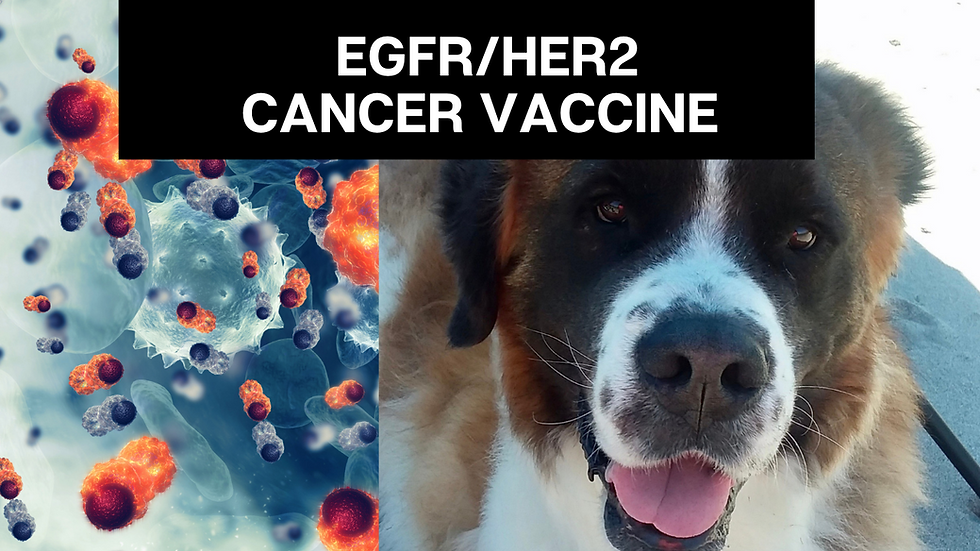How Vaccines Can Cause Cancer, But Also Prevent and Cure Cancer
- CCA Team
- May 30, 2025
- 3 min read
Updated: Jun 18, 2025

Vaccines are powerful tools for shaping immune responses, but their role in cancer is complex. While some rare cases show vaccines contributing to cancer development, many vaccines are designed to prevent cancer, and a growing number aim to treat it. Here's how.
1. When Vaccines May Cause Cancer: Injection-Site Sarcomas
In rare cases, vaccines—especially in cats—have been associated with injection-site sarcomas (ISS). These are aggressive tumors that develop at the site of vaccination, most commonly from adjuvanted vaccines used against rabies or feline leukemia virus (FeLV).
What Causes It?
The underlying mechanism isn’t fully understood, but chronic inflammation triggered by the vaccine adjuvant (a substance added to enhance the immune response) is thought to contribute. In some cats, this prolonged immune stimulation may lead to mutations and uncontrolled cell growth.
While extremely rare in dogs and humans, this phenomenon underscores that immune stimulation can carry risks.
2. When Vaccines Prevent Cancer: HPV and Calviri's Canine Vaccine
Some vaccines are explicitly designed to prevent virally induced cancers. The most successful example in human medicine is the HPV vaccine (e.g., Gardasil), which prevents cervical and other cancers caused by human papillomavirus.
Calviri's Canine Cancer Vaccine
In dogs, the biotech company Calviri is developing a vaccine to prevent cancer altogether, not just virally induced forms. Their approach targets abnormal proteins (neoantigens) that are common across many cancers.
It’s a multi-epitope RNA vaccine, tested in a large canine clinical trial
The goal: train the dog’s immune system to recognize and eliminate precancerous or early cancer cells before tumors develop.
This "cancer interception" strategy represents a new step toward reducing the risk of cancer in dogs—something never attempted at scale. The data from the trial has not yet been published but is expected in fall 2025.
3. When Vaccines Treat Cancer
Cancer vaccines can also be therapeutic—used to treat cancer by activating the immune system to attack tumors already present. It’s called cancer immunotherapy.
One exciting example is the EGFR/HER2 peptide vaccine currently in clinical trials for dogs with various cancers, including osteosarcoma, hemangiosarcoma, and urothelial carcinoma.
How It Works:
The vaccine delivers synthetic peptides derived from EGFR and HER2—two receptors often overexpressed on tumor cells.
It trains the dog’s immune system to generate antibodies that target cancer cells expressing these proteins.
Early results show promise in slowing or reversing metastasis, especially in tumors that are difficult to treat with surgery or chemo alone.
Other cancer vaccines can help both dogs and cats. For example, Torigen’s autologous cancer vaccine is made from a pet’s tumor sample and can be used to treat different types of canine and feline solid tumors.

Conclusion: The Dual Nature of Cancer Vaccines
Vaccines occupy a paradoxical space in oncology: while they can prevent or treat cancer, under certain conditions, they may also contribute to it.
They may contribute to cancer if chronic inflammation goes unchecked, as in injection-site sarcomas.
They can potentially prevent cancer, particularly when viruses are involved or when designed to intercept tumor development early.
They’re being used to treat cancer, by helping the immune system recognize and attack tumors—offering hope in both dogs and people.
As our understanding of cancer immunology grows, so too will the role of vaccines in reshaping cancer outcomes-for prevention, treatment, and potentially even cure.
Check out other articles and videos
Questions? Email us at info@ccralliance, and we'll get back to you as soon as we can!
Canine Cancer Alliance is a non-profit organization supporting research for canine cancer cures.
All information on the Canine Cancer Alliance website is for educational purposes only. It is not intended to be a substitute for professional veterinary advice.
Always seek guidance from your veterinarian with any questions regarding your pet’s health and medical condition.
%20(2).png)



In Build Now GG, I played one match before bed and told myself it was the last one. Three matches later, I was still chasing that perfect fight.